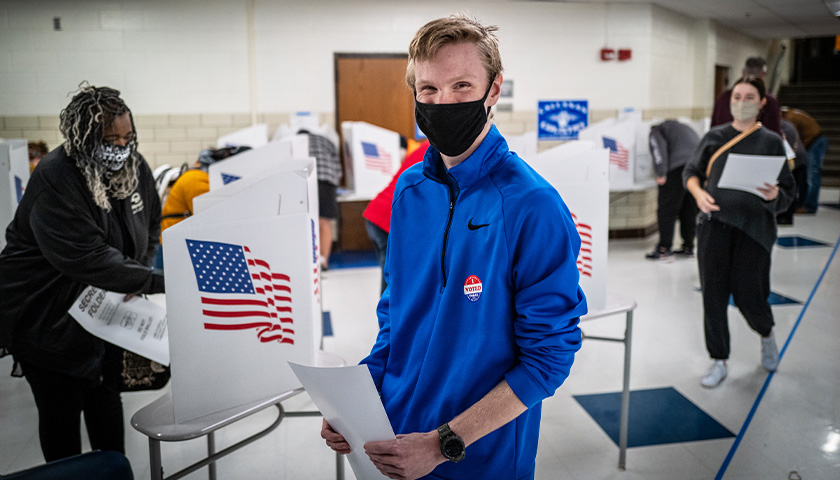by Eric Lendrum
A recent poll shows that, two years after a controversial presidential election with widespread allegations of voter fraud, over half of Americans still do not have confidence in the way elections are carried out in the United States.
As reported by the Associated Press, the poll by the AP and NORC Center for Public Affairs Research shows that 52 percent of American voters say that American democracy is not working well; by contrast, just 9 percent of voters think democracy in America is working “extremely well” or “very well.” Prior to the 2020 election, only about 40 percent of Americans were confident that their votes would be counted fairly and accurately.
In this new poll, Republicans are more likely to be skeptical of elections than Democrats, with 68 percent of GOP voters saying that American democracy is not working. Among Democrats, the number is just 40 percent. Two years ago, only 32 percent of Republicans doubted the democratic system, while 63 percent of Democrats felt the same way.
The poll also shows that roughly 25 percent of American adults are optimistic about the way political leaders are chosen in this country, with 43 percent saying they are pessimistic and another 31 percent saying they are indifferent.
Regarding the upcoming November midterms, 47 percent of respondents say they have either “a great deal” or “quite a bit” of confidence that their votes will be counted fairly. That percentage also breaks down along party lines, with 74 percent of Democrats feeling this way compared to just 25 percent of Republicans who have “high confidence;” another 30 percent of Republicans have “moderate” confidence, while 45 percent have no confidence.
The 2020 election saw numerous instances of voter fraud and other widespread irregularities, ranging from GOP poll watchers not being allowed to review the counting of ballots, to undated mail ballots being counted anyway, to the discovery of some Republican ballots being mysteriously thrown out, among other examples. The most egregious examples included states that unilaterally changed election laws, either by Democratic governors or Democratic secretaries of state, often without the consent of the state legislatures, using the coronavirus as an excuse to expand early voting periods, access to mail-in ballots, the practice of ballot-harvesting, and the implementation of ballot drop-boxes, all of which are processes that are extremely vulnerable to fraud.
– – –
Eric Lendrum reports for American Greatness.
Photo “Election Day 2020” by Phil Roeder. CC BY 2.0.








